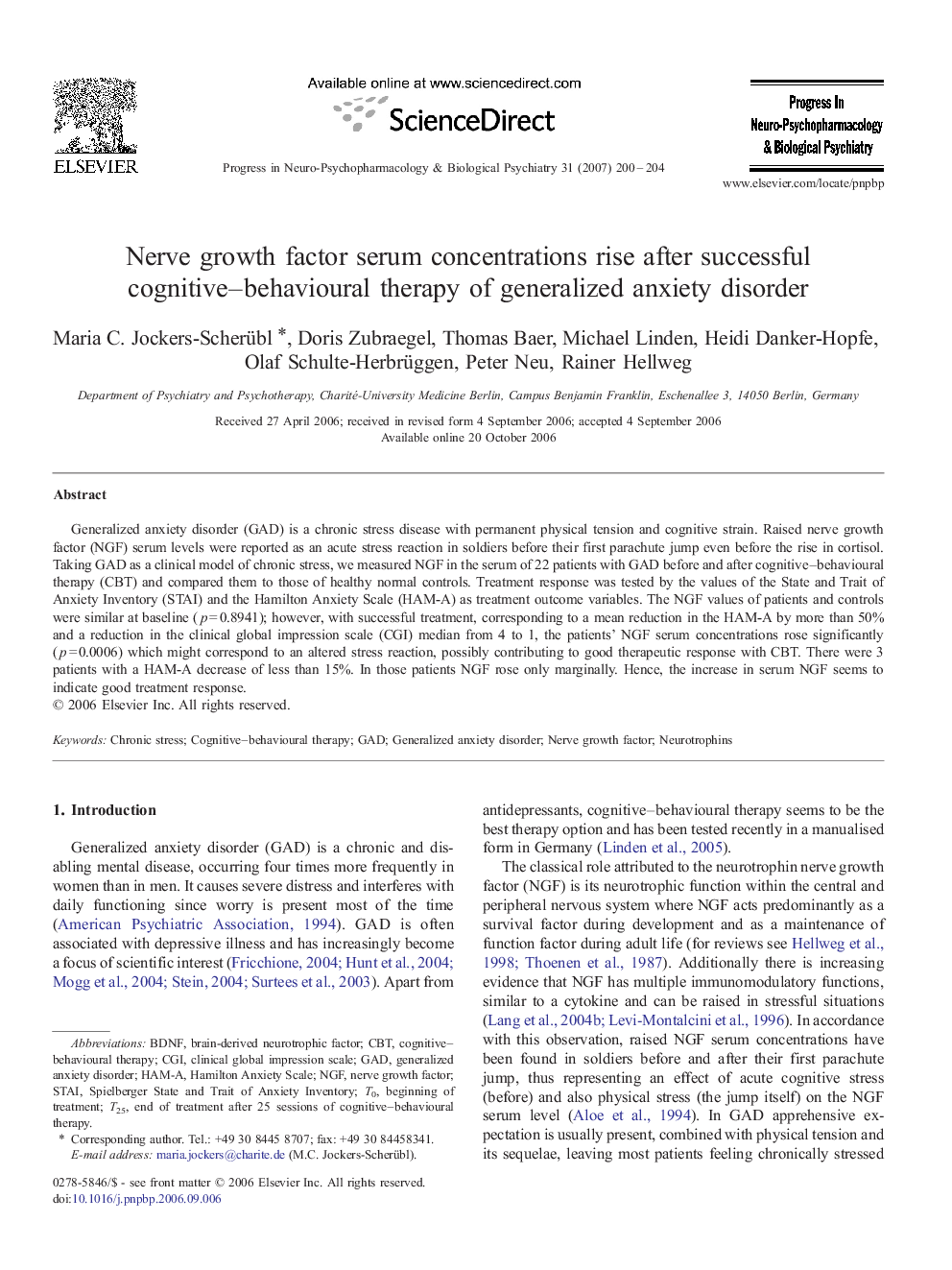| Article ID | Journal | Published Year | Pages | File Type |
|---|---|---|---|---|
| 2566031 | Progress in Neuro-Psychopharmacology and Biological Psychiatry | 2007 | 5 Pages |
Generalized anxiety disorder (GAD) is a chronic stress disease with permanent physical tension and cognitive strain. Raised nerve growth factor (NGF) serum levels were reported as an acute stress reaction in soldiers before their first parachute jump even before the rise in cortisol. Taking GAD as a clinical model of chronic stress, we measured NGF in the serum of 22 patients with GAD before and after cognitive–behavioural therapy (CBT) and compared them to those of healthy normal controls. Treatment response was tested by the values of the State and Trait of Anxiety Inventory (STAI) and the Hamilton Anxiety Scale (HAM-A) as treatment outcome variables. The NGF values of patients and controls were similar at baseline (p = 0.8941); however, with successful treatment, corresponding to a mean reduction in the HAM-A by more than 50% and a reduction in the clinical global impression scale (CGI) median from 4 to 1, the patients' NGF serum concentrations rose significantly (p = 0.0006) which might correspond to an altered stress reaction, possibly contributing to good therapeutic response with CBT. There were 3 patients with a HAM-A decrease of less than 15%. In those patients NGF rose only marginally. Hence, the increase in serum NGF seems to indicate good treatment response.
